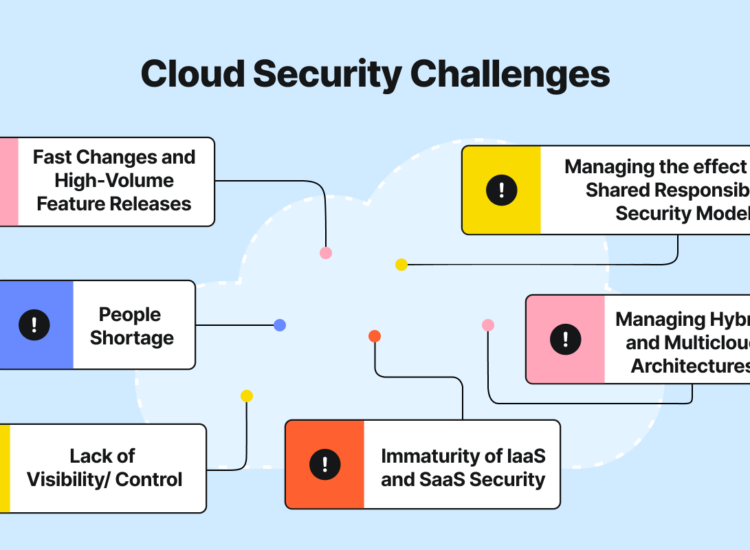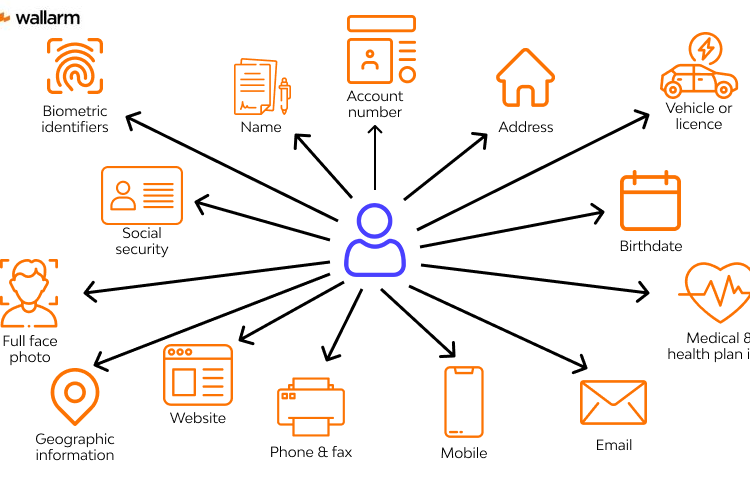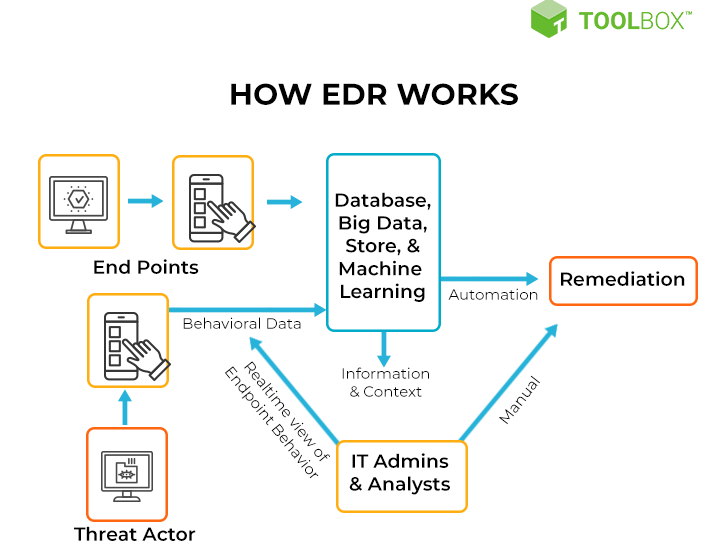The cybersecurity job market is booming, with a projected 31% increase in opportunities by 2029. However, filling these roles requires a skilled workforce. Online cyber security degree programs offer a flexible path to acquiring the necessary expertise, but program quality varies significantly. Careful research is crucial for prospective students.
Toc
- 1. Finding the Right Accredited Online Cyber Security Degree Program
- 2. Curriculum and Specializations in Online Cyber Security Degrees
- 3. Related articles 01:
- 4. Cost and Financial Aid for Online Cyber Security Degree Programs
- 5. Career Advancement and Industry Certifications
- 6. Related articles 02:
- 7. Choosing the Best Online Cyber Security Degree Program for You
- 8. Success Stories and Testimonials
- 9. Conclusion: Your Path to Cybersecurity Success
In an era where data breaches and cyber threats are increasingly common, the need for trained professionals is more critical than ever. Cyber security degree programs online provide the necessary training to meet this demand, allowing individuals to gain essential skills and knowledge while balancing their work and personal lives. This article serves as a comprehensive guide to help working professionals identify the best online cyber security degree programs, including important factors like accreditation, curriculum, cost, career services, and inspiring success stories from graduates.
Finding the Right Accredited Online Cyber Security Degree Program

When embarking on the journey to earn a cyber security degree online, one of the most important considerations is program accreditation. Accreditation ensures that the educational institution meets specific quality standards, which can significantly enhance the value of your degree in the job market.
Importance of Accreditation
Accredited online cyber security degree programs are evaluated by recognized accrediting bodies, such as the Western Association of Schools and Colleges (WASC) or the Accreditation Board for Engineering and Technology (ABET). These organizations assess the quality of the education provided, ensuring that students receive a robust learning experience that prepares them for the challenges of the cybersecurity field.
Accreditation impacts job market value and recognition. Employers often prioritize candidates from accredited programs, as these credentials demonstrate a commitment to quality education and adherence to industry standards. Furthermore, accreditation also influences eligibility for government contracts and grants, impacting not only individual career prospects but also the overall security posture of organizations working with government agencies. For example, certain federal contracts require employees holding cybersecurity certifications earned through accredited programs to meet specific security clearance requirements.
Examples of Accredited Online Cyber Security Degree Programs
Among the best online cyber security degrees available, several institutions stand out for their accredited programs. For instance, DeVry University offers highly regarded online programs that have received accreditation from recognized bodies. Other notable institutions include:
- University of Maryland Global Campus
- Southern New Hampshire University
- University of Phoenix
These programs not only provide quality education but also offer specialized tracks that align with various career goals, such as digital forensics, network defense, and cloud security.
Curriculum and Specializations in Online Cyber Security Degrees
The curriculum of a typical online cyber security degree program is designed to empower students with the essential skills and knowledge required in the field. Core courses often cover areas such as ethical hacking, network security, incident response, risk management, and cybersecurity law.
Essential Skills and Knowledge Areas
Students can expect to gain expertise in the following areas:
- Ethical Hacking: This involves using penetration testing techniques to identify vulnerabilities, such as SQL injection flaws or cross-site scripting (XSS) vulnerabilities, before malicious actors can exploit them. For example, a student might learn to use tools like Burp Suite to perform web application security testing.
- Network Security: This includes understanding firewall rules, intrusion detection systems (IDS), and intrusion prevention systems (IPS), and implementing network segmentation to isolate critical systems. Students might learn to configure Cisco routers and switches to enhance network security.
- Cryptography: Exploring techniques for securing information through encryption and decryption, students gain insights into algorithms like AES (Advanced Encryption Standard) and RSA (Rivest-Shamir-Adleman), which are vital for data protection.
- Incident Response: Developing strategies to respond effectively to security breaches and mitigate damage involves learning about incident handling processes, including preparation, detection, analysis, containment, eradication, and recovery.
- Digital Forensics: Gaining skills in analyzing digital evidence to support investigations and legal proceedings helps students understand how to gather, preserve, and analyze data from digital devices.
Hands-On Learning Experiences
Many online programs incorporate hands-on learning experiences, such as virtual labs and simulated environments, to provide practical skills. This practical approach not only equips students with theoretical knowledge but also prepares them for real-world challenges in the cybersecurity field. Understanding how to secure networks, analyze vulnerabilities, and respond to incidents are vital skills that graduates will carry into their professional lives.
1. https://bomnuocdailoan.com/mmoga-doctorate-programs-in-education-your-path-to-leadership-and-impact/
4. https://bomnuocdailoan.com/mmoga-online-bsw-degree-programs-your-path-to-a-rewarding-career/
5. https://bomnuocdailoan.com/mmoga-higher-education-masters-programs-a-comprehensive-guide/
Popular Specializations
In addition to core curriculum components, many online cyber security degree programs offer specializations that allow students to focus on specific areas of interest. Some popular specializations include:
- Digital Forensics: Concentrating on the recovery and investigation of material found in digital devices, students learn to use forensic tools and methodologies to uncover evidence.
- Cloud Security: Learning how to protect data and applications in cloud environments, students explore compliance frameworks such as AWS Well-Architected Framework and Azure Security Benchmark.
- Network Defense: Gaining expertise in designing and implementing secure network architectures, students develop skills in monitoring and defending networks against threats.
- Risk Management: Understanding how to assess and mitigate risks associated with information security, students learn to conduct risk assessments and develop strategies to minimize vulnerabilities.
These specializations can provide targeted knowledge that aligns with specific career goals, making graduates more competitive in the job market.
Cost and Financial Aid for Online Cyber Security Degree Programs
One of the most significant considerations for prospective students is the cost of obtaining a cyber security degree online. Fortunately, many accredited programs offer affordable options, and there are various financial aid resources available to help alleviate the financial burden.
Tuition Costs and Comparison
Online cyber security degree programs often come with lower tuition costs compared to traditional on-campus options, making them a more cost-effective choice. The precise average tuition costs can vary greatly and change yearly, but many programs fall within the range of $10,000 to $30,000 per year, depending on the institution and program specifics. When comparing programs, it’s essential to consider not only tuition costs but also additional fees, such as technology fees, textbooks, and course materials. According to a 2023 report from the National Center for Education Statistics, the average cost for an online bachelor’s degree in cybersecurity was around $18,000 per year.
Financial Aid Options
Many institutions provide financial aid options to help students finance their education without incurring heavy debt. Some of the most common financial aid resources include:
- Scholarships: Many universities offer merit-based or need-based scholarships specifically for students pursuing degrees in cybersecurity.
- Grants: Federal and state grants can provide financial assistance that does not need to be repaid.
- Loans: Federal student loans often come with lower interest rates and flexible repayment plans.
- Payment Plans: Some institutions offer flexible payment plans that allow students to spread tuition costs over time.
Accelerated Learning Paths
For those looking to minimize their educational expenses and time commitment, accelerated cyber security degree online programs can be an excellent option. These programs enable students to complete their degrees in a shorter timeframe, allowing them to enter or advance in the workforce quickly. Additionally, prospective students should explore the possibility of transferring credits from prior coursework or professional certifications, which can significantly reduce the overall time and cost of obtaining a degree.
Career Advancement and Industry Certifications
Earning a degree in cybersecurity can lead to various career opportunities with significant earning potential. Positions such as cybersecurity analyst, network security engineer, and information security manager are among the many roles available to graduates.
Potential Career Paths
Graduates of online cyber security degree programs can explore numerous career paths, including:
- Cybersecurity Analyst: Responsible for monitoring and defending against security threats, cybersecurity analysts play a critical role in protecting organizations from data breaches.
- Network Security Engineer: These professionals design and implement secure network infrastructures, ensuring that systems are protected from unauthorized access and attacks.
- Information Security Manager: Overseeing an organization’s information security policies and practices, information security managers are tasked with developing strategies to protect sensitive data.
- Digital Forensics Investigator: Analyzing digital evidence to support legal investigations, these specialists work closely with law enforcement and legal teams.
Salary Information
The median annual salary for information security analysts is approximately $103,590, highlighting the financial benefits of pursuing a degree in this field. As graduates gain experience and advance into higher-level positions, their earning potential can significantly increase. According to the U.S. Bureau of Labor Statistics, the job outlook for cybersecurity positions is expected to grow much faster than average, reflecting the increasing demand for skilled professionals.
Importance of Industry Certifications
In addition to a degree, obtaining industry certifications can further enhance job prospects. Certifications such as CompTIA Security+, Certified Ethical Hacker (CEH), and Certified Information Systems Security Professional (CISSP) are highly regarded in the industry. These certifications not only validate skills but also demonstrate a commitment to professional development, which can lead to increased earning potential and career advancement opportunities.
Many employers prefer candidates who hold relevant certifications, as these credentials indicate a level of expertise and dedication to the field. Pursuing these certifications can be integrated into the degree program, allowing students to prepare for exams while completing their coursework.
Current Trends in Cybersecurity
The rise of AI and machine learning is significantly impacting cybersecurity. AI-powered threat detection systems are becoming increasingly prevalent, requiring professionals with skills in analyzing AI-generated threat intelligence and managing AI-driven security tools. Furthermore, the increasing prevalence of cloud-based infrastructure necessitates expertise in cloud security architectures and compliance frameworks such as AWS Well-Architected Framework and Azure Security Benchmark. Staying updated on these trends is essential for graduates seeking to remain competitive in the ever-evolving cybersecurity landscape.
1. https://bomnuocdailoan.com/mmoga-online-bsw-degree-programs-your-path-to-a-rewarding-career/
3. https://bomnuocdailoan.com/mmoga-doctorate-programs-in-education-your-path-to-leadership-and-impact/
5. https://bomnuocdailoan.com/mmoga-higher-education-masters-programs-a-comprehensive-guide/
Choosing the Best Online Cyber Security Degree Program for You
Selecting the right online program requires careful consideration of several factors. Prospective students should evaluate the program’s accreditation status, curriculum, cost, flexibility, and available career support services. A thorough checklist can help guide this decision-making process.
Key Factors to Consider
- Accreditation: Ensure the program is accredited by a recognized body.
- Curriculum: Look for programs that offer a comprehensive set of courses covering critical areas of cybersecurity.
- Cost: Compare tuition and fees across programs to find the most affordable options.
- Flexibility: Consider programs that allow for part-time study or asynchronous learning.
- Career Services: Evaluate the availability of internship opportunities, job placement services, and networking events.
Assessing Program Reputation
While fully free cyber security degree online options are rare, many accredited programs offer financial aid opportunities that can alleviate the financial burden of education. It’s essential to research and take advantage of these resources to make pursuing a degree more accessible.
Exploring Institutional Resources
When evaluating programs, prospective students should also consider the reputation of the institution and its connections within the cybersecurity industry. Programs that have established partnerships with industry leaders may offer students valuable internship and job placement opportunities upon graduation.
Considering Learning Style and Support
It’s also important to consider your preferred learning style. Some students thrive in collaborative environments, while others may prefer the independence of online learning. Assess the level of instructor support and interaction offered in online programs to ensure it aligns with your learning preferences.
Success Stories and Testimonials
Hearing from those who have successfully navigated their online education can provide inspiration and insight. Numerous professionals have shared their experiences, highlighting how obtaining an online cyber security degree has positively impacted their careers. Testimonials often emphasize the flexibility of online learning and the valuable skills gained throughout the program.
Many graduates have reported promotions and new job opportunities directly resulting from their degrees and the specialized knowledge acquired during their studies. Their stories reflect the transformative potential of pursuing education in the cybersecurity field, illustrating the tangible benefits of online learning.
Some graduates have transitioned from unrelated fields into cybersecurity, citing the online degree as a crucial factor in their career change. These success stories highlight the accessibility of online programs and their ability to open doors for individuals looking to make a significant career shift.
Conclusion: Your Path to Cybersecurity Success
Cyber security degree programs online present a viable pathway for working professionals looking to advance their careers in a rapidly growing field. With the flexibility of online education, access to accredited programs, and numerous resources available for financial support, students can successfully balance their studies with their professional lives. As the demand for cybersecurity experts continues to rise, now is an opportune time to consider enrolling in an online program to enhance your skills and position yourself for future success in this dynamic industry.
The journey to a fulfilling career in cybersecurity begins with the right education and commitment to professional development. Start exploring the best cyber security degree programs online today and take the first step toward a rewarding career in this vital field.










